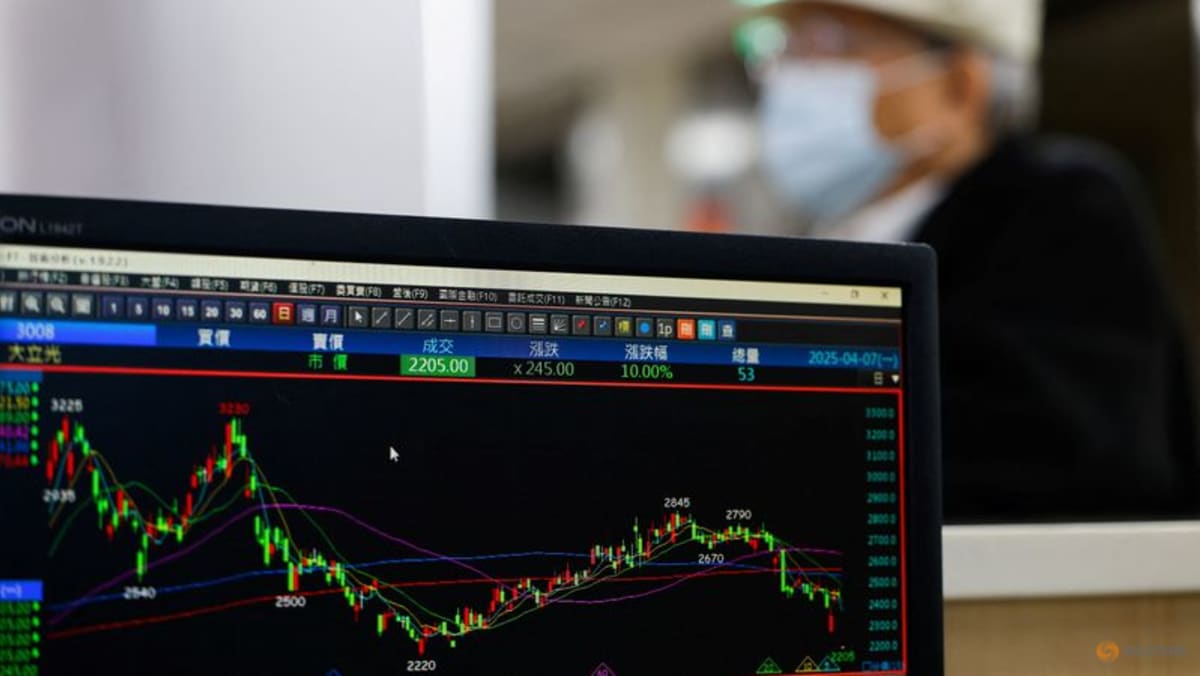TAIPEI :Taiwan stocks plummeted almost 10 per cent on Monday in their first trading since U.S. President Donald Trump announced new import tariffs last week, with the head of the island’s stock exchange saying it would roll out more stabilisation policies if needed.
After opening on Monday following a two-day market holiday on Thursday and Friday, Taiwan’s benchmark index dropped to its lowest level in more than a year and was poised for its biggest one-day percentage drop since at least 1990, LSEG data showed. “The panic selling pressure is very high,” said Venson Tsai, an analyst at Cathay Futures in Taipei. “This is a problem of market confidence.”
Taiwan’s top financial regulator on Sunday announced it would impose temporary curbs lasting all this week on short-selling of shares to help deal with potential market turmoil from the tariffs.
Shares in chipmaker TSMC and electronics maker Foxconn both fell near 10 per cent, triggering the 10 per cent circuit breaker in the Taiwan market.
While semiconductors are not included in Trump’s tariffs, Taiwan has a trade-dependent economy highly reliant on its part in the global electronics supply chain for everything from smartphones to cars.
Taiwan, hit with a 32 per cent duty, was singled out by Trump as among the U.S. trading partners with one of the highest trade surpluses with the country.
Taiwan on Friday announced a T$88 billion ($2.65 billion) support package for companies hit by the tariffs, while President Lai Ching-te on Sunday said the island would buy more from and invest more in the United States, with the aim of a zero-tariff regime between the two.
Speaking to reporters shortly after the market opened, Taiwan Stock Exchange Chairman Sherman Lin said it would coordinate with the financial regulator to take further stabilisation steps if needed.
The stock exchange will maintain flexibility in stabilisation measures this week to handle volatility stemming from new U.S. import tariffs, Lin added.
He said it would be hard for Taiwan to escape the market impact of the tariffs, but called on investors to have confidence in Taiwanese companies and the government.
Allen Huang, a vice president of Mega Financial’s securities investment unit, said in a worst-case scenario, the chance of a recession could be higher than 50 per cent.
“We’re not expecting Trump to change his policy in the near term,” he said.
Goldman Sachs downgraded Taiwan to “underweight” in its Asian market allocations on Sunday, citing high exposure to U.S. exports and market sensitivity.
($1 = 33.2020 Taiwan dollars)
